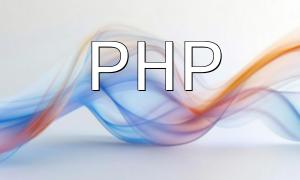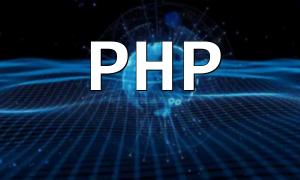Introduction
With the rapid development of the internet, PHP, as a popular server-side scripting language, is widely used in web development. However, as application scales grow, optimizing PHP code performance has become increasingly important. This article introduces the low-level development principles of PHP7 and reveals how to optimize PHP code performance.
1. The Necessity of Understanding PHP7's Low-Level Development Principles
PHP7 is the latest version of the PHP language, with significant upgrades and optimizations at the core, greatly improving PHP code performance. Understanding PHP7's low-level development principles helps us gain a deeper insight into how PHP code is executed, enabling us to target optimizations more effectively.
2. Practical Methods for Low-Level Development
- Use the Latest Version of PHP7
First, ensure that you are using the latest version of PHP7. Each new version fixes performance issues from previous versions and introduces new optimization measures. Updating your PHP version regularly is the first step in optimizing performance.
- Make Use of PHP's Built-in Functions
PHP provides a variety of built-in functions, such as string manipulation, array operations, and file handling. These functions are optimized at the core and are more efficient than custom functions. Therefore, leveraging built-in functions wherever possible can significantly improve performance.
- Use Reference Passing Appropriately
In PHP, variables are passed by value by default, meaning a copy of the variable is created when a function is called. Reference passing can reduce unnecessary memory duplication and improve execution speed. Thus, using reference passing where appropriate can optimize PHP code performance.
- Choose the Right Data Types
PHP supports various data types, such as strings, integers, floating-point numbers, and arrays. Choosing the appropriate data type based on specific requirements helps reduce memory usage and improve execution efficiency. For instance, when storing large amounts of integers, using integer arrays is more efficient than using regular arrays.
- Utilize Caching Mechanisms Effectively
PHP provides several caching mechanisms, such as OPcache and APC. These caching mechanisms can store the compiled results of PHP code, preventing redundant compilation, thereby improving execution speed. Properly configuring caching mechanisms can significantly optimize PHP code performance.
- Reduce Database Access Frequency
Database access is often a performance bottleneck in web applications. Therefore, reducing the frequency of database accesses can significantly enhance execution efficiency. Optimizing database design, using caching, and batch processing are some strategies to reduce database access and improve performance.
- Select the Right Algorithms and Data Structures
Writing efficient PHP code involves choosing the appropriate algorithms and data structures. Selecting the right algorithm and data structure helps reduce unnecessary calculations and memory overhead, thereby improving execution efficiency. Therefore, understanding common algorithms and data structures, and selecting them appropriately, is crucial for optimizing PHP performance.
Conclusion
By understanding PHP7’s low-level development principles and applying practical optimization techniques, developers can effectively enhance PHP code performance. Using PHP's built-in functions, optimizing reference passing, selecting appropriate data types, leveraging caching mechanisms, reducing database access, and choosing the right algorithms and data structures are all essential strategies for improving PHP performance. With continuous practice and experience, developers can provide users with faster, more efficient web applications.









